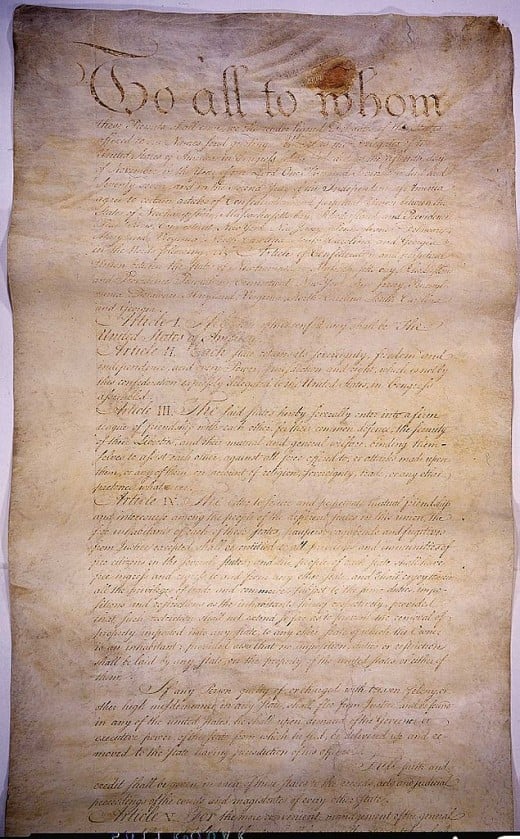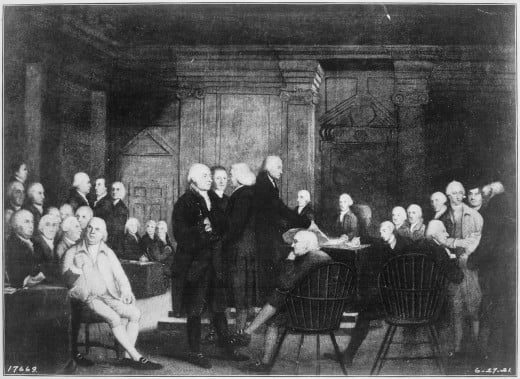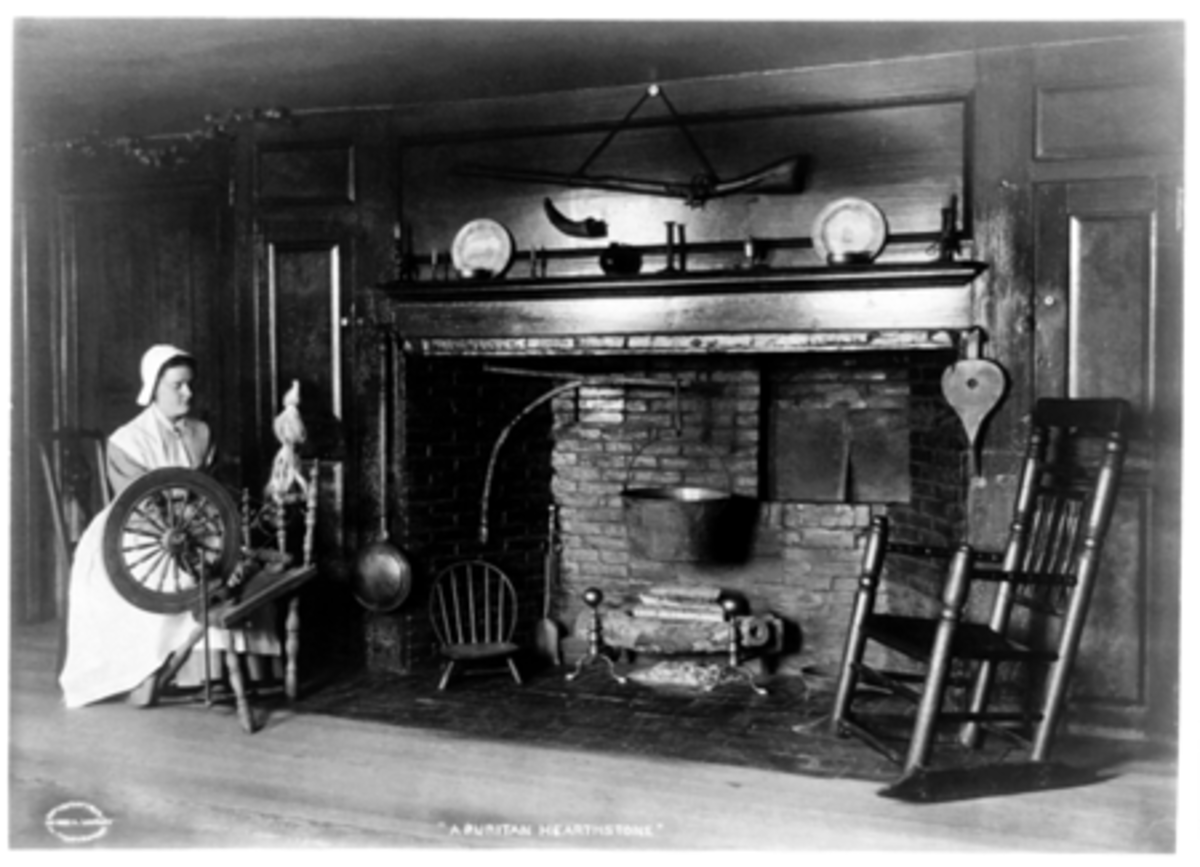- HubPages»
- Education and Science»
- History & Archaeology»
- History of the Americas
The Articles of Confederation: Failure or Success?

Discussing the idea that the Articles of Confederation were a failure is a matter of viewpoint. Was it a failure because of being replaced by the Constitution? Or can one defer to the idea that while the nation was comparatively weak under the Articles they still provided a strong foundation for the new government to be founded upon and be a blueprint for its replacement, the Constitution? Historian Max Farrand points out that;
“The surprising thing, especially to one accustomed to condemn the Articles of Confederation, is to see how large a part of the powers vested in Congress were taken from the Articles of Confederation.”
The Constitution did not magically arise from the minds of an “assembly of demigods”, as Thomas Jefferson referred to the Constitutional Convention, but came from the firmly grounded Articles of Confederation. However, the emergence of increasingly adamant voices for a more centralized government, which the Articles did not provide for, became more and more prolific. The real issue at hand was trying to ratify a document that could be agreed upon, by colonies that rarely agreed upon anything equally. As Cornelius Harnett of North Carolina stated, “It is the best Confederacy that could be formed especially when we consider the number of states, their different interests, customs, etc.” This in itself has to be attributed to the replacement of the Articles. Factions in Congress, pitting big states against small states, Northern against Southern, land holders against non-landholders forced delegates into factions.
The fact that these men were able to come up with a foundational document that would be the basis for the greatest document ever written is amazing. Two delegates, Silas Deane of Connecticut and Arthur Lee from Virginia had such rift that Deane returned to Europe in an effort to clear his name and in the process, some of his letters ended up in the hands of the British, who used them to urge Americans to reunite with Britain.
So the Articles themselves were not failures, but the motives, egos and pride of the men who wrote it should be considered more at fault than the document they created, which again, served as a blueprint for the Constitution.

The outbreak of hostilities at Lexington and Concord in April of 1775 made the colonists realize that reconciliation with the Crown was no longer an option and that not only did they need to declare their independence, but also needed a quick way to “form a confederation” while the revolution raged on.
Charles Meister contends that the Articles intent was to “replace the king’s imperialism as the cohesive bond. Resentful however of the kings misuse of taxes and trade, these two factors were omitted from the Articles out of fear that the new government would abuse these two powers.”
Unfortunately, after eleven years of turmoil the absence of these items proved disastrous. The idea was to provide power to the government, but limited power, and a power that still came second only to the state. The members of the Congress did not want to replace one monarch with another monarch, so many of the offices that the eventual Constitution outlines were absent, mostly out of fear and paranoia. The goal was to find a compromise between those delegates that were looking for a strong, centralized government and those looking for a more loosely based structure. But with that sort of compromise there was really no way of incorporating a structure that would compel the States to comply. According to Gordon Anderson,
“States that had not paid their share of expenses for the war refused to pay anything. Massachusetts ended up paying a disproportionate amount. Disputes between states erupted with no successful means of resolution; there was no executive or judicial branch of government with the power to compel arbitration.”

After the Treaty of Paris in 1783, George Washington complained that Congress was “paralyzed.” Many people went back home to continue with life and the extremely loose nature of the Articles really left the government with no real ability to accomplish anything. According to Keith L. Dougherty, in the debates on 1788 the Federalists claimed that state politicians acted unilaterally, and contributed when the Continental army protected their states interests.
The Anti-Federalists claimed that state politicians understood their duty to the Union and contributed to advance its needs. Dougherty concludes that the States behavior validated the Federalist analysis and explains why the Articles required reform. Even though the Annapolis Convention was aimed at discussing uniform trade regulations, the real issue at hand was the new government and the States lack of cooperation under the Articles to perpetuate a viable and effective centralized government. Delegates from Delaware, New Jersey, New York and Pennsylvania met and decided that the issues with the government “of a nature so serious as to render the situation of the United States delicate and critical, calling for an exertion of the united virtues and wisdom of all the members of the Confederacy.”
Eventually calls were too numerous to not find a way to replace the Articles of Confederation. Add on top of that Shays’ Rebellion which almost toppled the state government of Massachusetts and other conflicts within and between the states and no ability to centrally address the threats and it was no wonder that the Annapolis Convention was called to address these issues. That convention gave way to the Constitutional Convention, which were initially only aimed at revising the Articles. This new Constitution would not be without its concerns, but the ability to have a more cohesive, stable and “united” government far outweighed many of the concerns that the Anti-Federalists feared.
The Articles of Confederation are consistently called a failure, however, it must be noted that under the circumstances that it was written it was a worthwhile document that invariably lead to a greater document. Failure would have been a collapsed government with no replacement. The Articles were far from that. The foundations and precepts, and even the debate and discussion generated by the Articles most assuredly had a purpose that maybe the writers never foresaw, but formed their thinking and rationalization for a new form of government based on the Articles basic premise. They would launch the Annapolis and Constitutional Conventions and would be the first and major document in the formation of the future United States of America.
Sources
Anderson, Gordon L. "The Formation of the United States." Philosophy of the United States (2005): 3-11.
Dougherty, Keith L. "An Empiracl Test of Federalist and Anti-Federalist Theories of State Contributions, 1775-1783." Social Science History (2009): 48-67.
Meister, Charles W. The Founding Fathers. Jefferson: McFarland & Company Inc., 1987.
Wendel, Thomas. "The Articles of Confederation." National Review (1981): 768-770.







